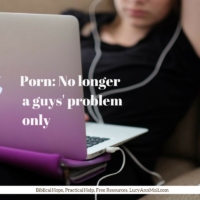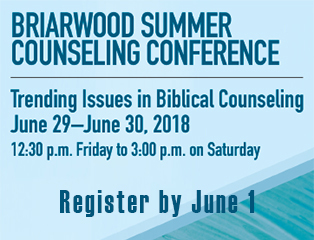
by Lucy | Dec 24, 2018 | biblical counseling, thoughts
Does a truly beautiful Christmas mean newly fallen snow, gingerbread houses, and piles of sparkly presents under the tree? Of course not. A truly beautiful Christmas is so much more.
God adorns you on the inside, beginning in your thoughts. Yucky, God-dismissing thoughts are disgusting like dirty snow. But beautiful God-glorifying thoughts spill into new attitudes and new actions.
What’s truly beautiful: a Christ-focused Christian woman!
But how do we get from ugly, dirty snow thinking to the truly beautiful? This is a favorite question, one I use to counsel my own heart and to help my counselees. Indeed, if we don’t know our hope, then how can we get there?
In today’s enouragement…

You’ll see how to focus your thoughts on God’s glory, which in turn changes your attitude and actions. And, dear sister, if now you have crummy thoughts and a humbug attitude, please keep reading because these words are for you.
Click & Tweet!
1. Focus on God in Your Thoughts
A truly beautiful Christmas begins with thinking on the truth that we love God because he first loved us (1 John 4:19). We couldn’t save ourselves. We need a Savior, born in a manger long, long ago, God’s answer to our deepest problem. That is, sin.
And this is important: we choose to focus on God’s glory with our minds, not our feelings. Please don’t let emotions rule you. For when you do, you may soar like an eagle one moment but drop like a stone the next.
Instead, focus on his glory no matter your feelings. As you do, nasty thoughts lessen in intensity and duration and new, God-glorifying thoughts take their place.
OUT GOES
Jealousy, bitterness, sadness, anxiety, doubt
IN COMES
Generosity, kindness, contentment, peace, confidence
2. Focus on God in Your Attitude
A truly beautiful Christmas becomes an amazing attitude. You see, as think on the God’s truth and agree with it, your attitude renews. To illustrate, let’s look at 1 Thessalonians 5:18 with my counselees. This verse says,
Give thanks in all circumstances; for this is the will of God in Christ Jesus for you.
As you might expect, most of my counselees deal with tough stuff. Who wants to give thanks for the hard? No one, right? But this isn’t what the verse says. It says to give thanks in all circumstances.
Yes, it’s horrible to learn a husband looks at porn. And it’s awful a teen daughter skips class or that you may lose your job. But you can be thankful that God is in control and is working out all things even when you cannot see it (2 Corinthians 5:7).
Are you beginning to see how your attitude changes as you focus on God? No one is a lost cause, no situation is hopeless. To the contrary! If you need help to improve your thinking, contact me.
Focus on God in Your Actions
A truly beatiful Christmas also means new God-glorifying actions, whether in word or deed. But each of us are weighed down, right? The single mom, the empty nester, the woman in chronic pain, the perfectionist, and on and on and on.
And modern-day, busy-busy Christmas makes demands on our schedules and energy, and sometimes in the middle of it all, our thoughts go south and our attitudes stink. But when we focus on God, our actions and words can display Christ beautifully.
Remember, change does NOT start with behavior modificaiton. Rather, as mentioned, it begins with your thoughts. So if you (or a friend) notice you spoke sharply or complained about snow or lack thereof, or if you’re dissatisfied, choose to think about your thoughts.
Ask yourself–
- What thoughts just ran though my mind?
Then condider–
- Do my thoughts honor God? Do they line up with the Word?
If not, then determine to change them.
- First, identify right thinking.
- Second, agree with God to renew your thoughts.
- Third, ask his help to change.
- And finally, thank him for what he’ll do even before he does it. This is faith!
Indeed, focusing on God in your thoughts, attitudes, and actions ensures a truly beautiful Christmas!
Merry Christmas, everyone!


by Lucy | Dec 11, 2018 | biblical counseling, emotions, thoughts
Has sexual sin taken you hostage, my sister in Christ? I want you to know there really is freedom. It is among the top issues I counsel biblically.
Now this reassurance:
Sexual sin is no worse than any other sin. Adultery / porn use / transgender issues / same-sex attraction — these are not the “unforgivable” sin. Yet sexual sin can destroy relationships and opens wide the door to anxiety and shame, even addictions. And it grieves the Holy Spirit.
In this article, you’ll discover 3 paths to freedom from sexual sin and to renewal.
- Share your story safely.
- Have an “escape plan.”
- Guard your heart.
1. Share Your Story of Sexual Sin
First, choose a safe person such as a trusted, female Christian friend or a pastor’s wife to share your story of sexual sin.
But what if you don’t have a safe person in your life? Then please contact me or another counselor on the Heart2Heart Counselor Directory at my website. We listen deep and don’t condemn..
And when you share your story, and someone really listens, you will begin to sense hope. Even shame and fear start to dissipate. Soon you’ll think that you really can change, that you aren’t stuck.
2. Have an Escape Plan
Second, as you share with someone you trust, you’ll also need an escape plan. Wonderfully, God has provided the way of escape. Consider 1 Corinthians 10:13, which is full of hope and promise.
No temptation has overtaken you that is not common to man. God is faithful, and he will not let you be tempted beyond your ability, but with the temptation he will also provide the way of escape, that you may be able to endure it.
 On your plan, you may want to include these items:
On your plan, you may want to include these items:
- names of trusted godly girlfriends to call when tempted.
- specific Bible verses to think on.
- Internet protection like Covenant Eyes.
- a list of places to go when tempted, such as the gym or coffee shop.
Remember, Jesus was tempted by Satan for 40 days in the desert and didn’t sin. (Temptation itself is not wrong.) Check out Matthew 4:1-11 and see how Jesus responded.
3. Guard Your Heart
Third, guard your heart by daily Bible reading and prayer, and learn to replace the world’s lies with God’s truth.
As you guard what you put in your mind, your heart responds. Your heart is the part of you that thinks, feels, and make choices. It is your spiritual inner person.
So freedom from sexual sin requires a heart set on pleasing God, not self. We act on what we think, and this is why biblical counseling focuses on right thinking as defined by God’s standard, the Bible.
Changing Heart Desires
In counseling women in sexual sin of any kind, I’ve discovered a two-fold process in renewing the mind and changing the desires of the heart.
Be encouraged: Sexual sin wants to take you hostage but Jesus has a radical love for you, and his radical love changes you. There’s hope.
Click & Tweet!
Counseling Hearts to Hope,


by Lucy | Jun 19, 2018 | biblical counseling, thoughts
Meditation: this word unnerves some Christians. They think it is Eastern-New-Age woo-hoo mysticism. But is all meditation … bad?
On the daily it seems a new yoga studio opens in town or a mindfulness article pops up online. In a 2012 survey by the National Institute of Health, 21 million adults and nearly 2 million children practice yoga, a mind-and-body practice with origins in ancient Indian philosophy. Mindfulness has roots in religious and philosophical systems, too.
BUT … Christian meditation focuses on the Word of God (Joshua 1:8; Psalm 1:2). It is a truly awesome Christian discipline when you fill your mind with God’s truths. Underline: fill your mind with God’s truth!
Click & Tweet!
So the important question is this: What are you meditating on? Three quick questions to consider:
- What is Christian meditation?
- Can Eastern meditation hurt you?
- How to begin Christian meditation.
What Is Christian Meditation?
The dictionary’s defines meditation this way: “To focus on one’s thoughts on; to ponder, think on, or muse.” But focus on what? Christian meditation has a very clear focus: God and his glory. Here are a few verses:
Let the words of my mouth and the meditation of my heart be acceptable in your sight, O LORD, my rock and my redeemer. Psalm 19:14
And,
May my mediation be pleasing to Him, for I rejoice in the Lord. Psalm 104:34
Psalm 1:2 and Philippians 4:8 provide answers.
But his delight is in the lawof the Lord,
and on his law he meditates day and night.
Finally, brothers, whatever is true, whatever is honorable, whatever is just, whatever is pure, whatever is lovely, whatever is commendable, if there is any excellence, if there is anything worthy of praise, think about these things.
Can Eastern Meditation Hurt You?

No doubt you’ve heard that meditation lessens anxiety as one empties her mind of the cares of the world and “turns inward.” The focus: your feelings.
But relying on your feelings leads you away from the God’s truth. Here’s a crucial question:
- What happens when you dwell on your fears or difficult circumstances?
You lose your peace, don’t you? And you may forget the freedom you have in Christ. And turning inward and focusing on your feelings, rather than God’s loving truth, creates havoc in your soul, doesn’t it? Your heart may be filled with despair or anger or fear.
The antidote: Meditate on God’s promises and presence!
Colossians 3:2-4 says;
Set your minds on things that are above, not on things that are on earth. For you have died and your life is hidden with Christ in God. When Christ who is your life appears, then you also will appear with Him in glory.
How to Begin Christian Meditation
Christian meditation is focusing on Scripture. Like any new habit, you’ll need to stick with it for it to become second-nature, but you can do it! God will help you! Here are a few ideas on getting started.
Time and Place
Set aside a specific time for reading God’s Word daily. Ideally, choose the same spot to read and meditate on God’s Word. Begin with prayer.
Choose Scripture
It may be tempting to read the latest Christian bestseller. Don’t. Instead, choose a book of the Bible to read through slowly or a section of Scripture.
Read and Reread
Read your selected Scripture once, then read it again. Slow down the second time.
Ask Questions
After reading your selected Scripture twice, ask questions:
- Who is the author and who is he addressing?
- Why is he writing?
- What do the verses say about God? about his audience?
- How does it apply to living a godly life today?
Write a Verse to Meditate On
Now write one of the verses in your selected Scripure to meditate on throughout your day. You may prefer a notecard or the “notes” section of your smartphone.
Pray
Thank God for revealing his truth to your mind. And ask him to help your walk in the loving truth he has revealed.
Counseling Hearts to Hope!


by Lucy | Jun 13, 2018 | biblical counseling, Counselor Resources, emotions, relationships, thoughts |
Women and porn: pornography is not a guys’ problem only. It’s growing exponentially among women, including Christians. In fact, every week or two I counsel yet another woman who struggles with porn.
Skewed Statistics
Truth be told, the statistics on women and porn use fail to tell the full story.
Click & Tweet!
Conservatively, one in five women and girls consume porn. The problem with the numbers starts with defining pornography. Yes, porn includes explicit photos and video. This is hard-core pornography. But there’s other forms!
What about erotica like the 50 Shades of Grey novel? Or how about racy romance novels? Or a Victoria’s Secret catalog? And does sexual fantasy count? Yes, yes, a hundred times yes.
In the words of author-blogger Jessica Harris, a former porn addict:
Pornography isn’t just stored on a computer or found in the pages of a magazine. It buries itself in the mind as memories. In some ways, your own body can serve as a source of pornography.
You may find this blog post uncomfortable to read. Perhaps you’ve already clicked close (and aren’t reading this now). Maybe you even unsubscribed. 🙁 But this topic is essential to know: Your daughters and granddaughters run into pornographic enticements. Every. Single. Day.
Generation Gap!
When it comes to women and porn, there’s a huge difference in porn use and age. Blame the Internet and smart phones.
Says Harris:
Walk into a room with a multi-generational group of men, and you can pretty much assume that the stats on male porn use are going to hold true throughout the generations in the room. Sure, the Baby Boomers grew up on Playboy and the Millennials grew up on smart phones, but still there’s this idea that pornography has been an issue for men for generations.
That is not the case for women.
If I walk into a room with a multi-generational group of women, my first and foremost concern is always to bridge the gap. Because the Baby Boomer women grew up in a time when pornography wasn’t really accessible to them. Nor was it made with them in mind. Their husbands might have been slinking around with magazines stuffed in brown paper bags, but they were not.
Millennial women, on the other hand, came of age at the time of the internet. Not only could we stumble upon a man’s porn stash, now we could access new content all on our own.
Click & Tweet!
Videos even. Without having to subscribe to the adult channels on cable.
Here’s her full post on what the statistics are NOT telling you about women and porn.
Change Is Coming
 If you hope to gather information about women and porn, you might Google “women and porn” or choose a variation: porn use among women, statistics on women addicted to porn, and so forth. And you’ll get very few hits.
If you hope to gather information about women and porn, you might Google “women and porn” or choose a variation: porn use among women, statistics on women addicted to porn, and so forth. And you’ll get very few hits.
But this is changing.
Among the few resoures is Heath Lambert’s podcast on “Women and Pornography.” You can hear the podcast or read the transcript. There have been a few chapters in biblical counseling books and a booklet or two. I hope to write a book on this subject, God willing. I have a heart for women hooked on porn. Even though it isn’t my story — anxiety and panic attack is part of mine — porn had its hooks in my brother and figures into his binge drinking and also his death. But that’s a story for another time.
Conference Talk on Women and Porn
 At the end of June I have three talks at Briarwood Summer Counseling Conference: “Trending Issues in Biblical Counseling.” One talk is on self-injury (i.e., cutting and other forms of self-mutilation). And another is on freedom from panic attacks. The third is “Breaking the Bondage of Pornography” (a women only talk). There’s a similar talk for pornography and men.
At the end of June I have three talks at Briarwood Summer Counseling Conference: “Trending Issues in Biblical Counseling.” One talk is on self-injury (i.e., cutting and other forms of self-mutilation). And another is on freedom from panic attacks. The third is “Breaking the Bondage of Pornography” (a women only talk). There’s a similar talk for pornography and men.
I am so happy that I get to speak to female counselors on this topice. With the explosion of internet availability, an ever-increasing number of women are seeking help with porn/masturbation. They often see no way out and have deep guilt and shame. Click here to see the schedule.
Counseling Hearts to Hope,


by Lucy | May 22, 2018 | biblical counseling, identity in Christ, thoughts
New heart, new desire, new life — every believer has this now. Crazy good truth, right? But sometimes we “forget,” don’t we? This article by guest writer Deborah Smith, which appeared first here on Reviving Your Heart, tells a story of we all need to heart: you are not what you were. Best of all, your hope is Christ. Her story is used with permission. Part 1 in a 3-part series.
Therefore, if anyone is in Christ, he is a new creation. The old has passed away; behold, the new has come (2 Cor. 5:17).
On January 22, 1999, the Lord delivered me from drug addiction. He removed the desire for drugs and alcohol and replaced it with a deep desire for Him. He began a good work in me—one that He promises to complete until the day of Jesus Christ. (Phil. 1:5). My deliverance was so immediate and drastic, it was obvious to everyone who knew me that the Lord had done something miraculous!
Click & Tweet!
Yes, my new life is a bonafide miracle. And if you are in Christ, so is yours!
Click & Tweet!
As a Christian, the Lord says that we are “new creations,” equipped with new hearts that will desire new things and will live a new life.
When is the last time you really thought about that? When you do reflect on it, what do you think? Do you walk in that truth or do you think things like, I’m definitely better, but I’m not sure about new?
While it’s difficult for some of us to believe this amazing truth because we still see sin in our lives, I want to encourage you to change your thinking. Yes, we still struggle with sin, but we are new, not perfect. Because of the very fact that you are a follower of the Lord Jesus Christ, you’re not the same person.
Consider these three beautiful truths:
- Christians have new hearts.
- Christians have new desires.
- And Christians have new life!
A New Heart
“I will remove the heart of stone from your flesh and give you a heart of flesh” (Ezek. 36:26).
The first thing God does when He saves us is to give us a heart that’s sensitive to His Spirit and able to be shaped by His Word. Considering that we are told to guard our heart, for out of it flows the issues of life (Prov. 4:23), it makes sense that the Lord begins His work there. Maybe you think things like,
I’ve got so much growing to do . . . or my heart still ain’t right! . . . or I don’t feel new.
Well, beloved, feelings are real, but they are not facts . . . and the fact is that the moment you and I confessed with our mouth the Lord Jesus and believed in our heart that God raised Him from the dead, we were saved. From that day forward, we are being made new. Pretty astounding, right?
Oh, this was good news to me, because nineteen years ago, I desperately needed to be made new! And truth is I’m still in need, and I’m still being made new. Our justification is instantaneous, but our sanctification is a process, so press toward the mark and be patient with yourself. He is taking us from one degree of glory to the next (2 Cor. 3:18).
With a New Heart Comes Freedom
Before the Lord called us out of darkness into His marvelous light (1 Peter 2:9), we were slaves to sin. Sin was our master, and it was a taskmaster! Consider the number of times you said, I’m not going to do that again or I’m not going to respond like that again, but found yourself unable to exercise any control.
For some reading this, you may remember indulging in sexual sin and even being soul-sick over it, but yet you had no power to resist. Or some of us were so completely self-centered in our thinking that we had no regard for others. Or perhaps you were consumed with jealousy and covetousness or anger and unforgiveness.
I remember wanting to be free from drugs and its accompanying sin years before I stopped. And when the Lord delivered me from those most obvious signs of my total depravity, I still struggled with heart issues: resentment, lying, greed, lust. Before the Lord’s grace in my life, I had no choice but to “be that person.” My friends, that’s bondage.
Here’s the good news: The Lord died to set us free! His Word says that those whom the Son sets free will be free indeed (John 8:36). Do you believe God’s Word? We will not be perfect this side of glory, but we are being perfected (Heb. 10:14). We aren’t yet what we’re going to be, but we aren’t what we used to be either. God says we have actually been reborn. My prayer is that we would believe God and embrace our new life, live free from regret of our sinful past, and walk boldly as children full of His Spirit.
Stay posted, friends: Part 2 covers new desires. You want new desires from what God has for you, don’t you?
Counseling Hearts to Hope,

by Lucy | Mar 22, 2018 | biblical counseling, Counselor Resources, emotions, thoughts
 Triggers: Often counselees speak of triggers, whether or not they have post-traumatic stress. It’s a societal buzzword. So what are triggers? How does the Bible term them? And what can you help your friend, counselee, or yourself handle them? The guest post by Andrea Lee whose article appeared first here on The Biblical Counseling Coalition website and is used with permission.
Triggers: Often counselees speak of triggers, whether or not they have post-traumatic stress. It’s a societal buzzword. So what are triggers? How does the Bible term them? And what can you help your friend, counselee, or yourself handle them? The guest post by Andrea Lee whose article appeared first here on The Biblical Counseling Coalition website and is used with permission.

As a biblical counselor, I often hear about “triggers.” These are situations, locations, words, and people that remind counselees of past pain or current heartache. These triggers threaten to engulf counselees in an avalanche of despair, anger, or anxiety. What is a trigger and how can a biblical counselor engage with people who seem to be subject to them?
Counselees view a trigger as an event or circumstance that is the cause of a particular response or emotional process
Click & Tweet!
. As a counselor to women, here are some situations I have encountered:
- It could be a mom who identifies her rambunctious toddler as a “trigger” – one energetic outburst and the mom is overwhelmed with exhaustion and despair.
- It could be a wife whose husband’s typical response in conflict is a “trigger”- one phrase or condescending look and the wife is flooded with anger or hopelessness.
- Or it could be a young single woman who sees Friday nights as a “trigger” – she has been alone and miserable for many Fridays and now dreads the end of every week.
In seeking to help these women, I explain to them that triggers do not cause their response. The so-called “trigger” is a reminder that tempts them toward a well-worn destructive thought pattern.
Click & Tweet!
The reminder is often associated with pain: previous failures, past hurts, or current broken relationships. Women feel helpless because they don’t know how to stop responding in a destructive way. I love to give hope by showing a new perspective on these moments.
When we label someone or something a “trigger,” we shift the place of emotional control from our own heart to an external object. The connection between event and emotion can mistakenly lead us to think the trigger is a cause. Actually, we have developed habits of thoughts in response to pain that continue to lead to these predictable emotional conditions. Our despair, anxiety, and anger reveal that we are ignoring God and disregarding His promises as we respond to the brokenness around us or in us. Instead of thinking in terms of triggers, I want counselees to see certain situations and people as cues – signals, prompts, and reminders – to begin a series of thoughts that are radically God-oriented. This shift in vocabulary begins to engage counselees in a process of repentance and trust when they are troubled by triggers.
Step 1: Recognize the triggers and the accompanying thinking
Women often know what launches them into a familiar path of pain. But here are questions that can help:
- What was the stimulus that began this descent into despair, anxiety, or anger?
- When do I have a disproportionate reaction to a situation or a person?
- Are others puzzled by the intensity of my response or mood swing?
Once the triggers are identified, it is vital to have the counselee write down their exact thoughts. You will probably hear some of these in the counseling room. For example:
- I can’t believe this is happening again. I can’t take it anymore. What if this never gets better?
- I’m stuck. Nothing ever changes. It’s unfixable. I’ll never change.
- Also I can’t breathe. I have to do something right now. I can’t stand the pressure.
If your trigger is related to an experience of sexual and/or physical abuse, please seek further help from a biblical counselor. You will also want to explore In the Aftermath, by Pam Gannon and Beverly Moore and Putting the Past in Its Place, by Steve Viars. If you are struggling with triggers associated with PTSD, Greg Gifford’s book, Helping Your Family Through PTSD, is a valuable resource.
Step 2: Repent by evaluating three categories
 God is gracious to help us identify triggers. It is a gift because it alerts us to repent in specific, concrete areas. Since repentance is the key to change, this gives us hope.[1] Repetitive elements in the counselee’s thinking will reveal weaknesses in theology and worship. Counselees often minimize or ignore God’s goodness, God’s presence, and God’s perfect ways.
God is gracious to help us identify triggers. It is a gift because it alerts us to repent in specific, concrete areas. Since repentance is the key to change, this gives us hope.[1] Repetitive elements in the counselee’s thinking will reveal weaknesses in theology and worship. Counselees often minimize or ignore God’s goodness, God’s presence, and God’s perfect ways.
Psalm 40:1-3 is a great passage to address these areas of unbelief.
- God IS good: “As for you, O Lord, you will not restrain your mercy from me; your steadfast love and your faithfulness will ever preserve me!”
- God IS present: “As for me, I am poor and needy, but the Lord takes thought for me. You are my help and my deliverer; do not delay, O my God!”
- And God IS working: “He inclined to me and heard my cry. He drew me up from the pit of destruction…He put a new song in my mouth”
The Psalmist doesn’t believe these things because he has a perfect past or a blameless record (see Psa. 40:12), but because God gives salvation out of His great mercy in Jesus Christ.
A prayer of repentance may sound something like this:
- Lord, this thought process reveals that I am not believing the truth about who you are. Please forgive me for going astray after a lie (Ps. 40:4).
- My thinking has become futile because I am not honoring you or thanking you (Rom. 1:21).
- I am in a pit of destruction and a miry bog of my own making when I continue to think hopeless, godless thoughts (Ps 40:2-3).
- Instead of spinning into despair and anxiety, help me to wait patiently for you and keep crying out to you. Thank you for your forgiveness and help.
Step 3: Mobilize your cue
Finally, help counselees prepare specific thoughts they will embrace the next time a trigger comes. Identify one thought that most fuels the downward cycle and prepare a God-honoring thought that will replace it. Develop simple statements that can be easily memorized and repeated. When they experience a trigger, the counselee should:
-
Engage in gratitude:
- Thank God for this opportunity to worship Him and to be changed.
- Thank Him for the reminder that we all need a Savior and God has provided one.
- And thank God for the reminder of past sin or hurt because it humbles us and pushes us to know Christ better
-
Embrace a promise:
- God’s grace is up to the challenge.[2]
- God will give me all the grace and strength I need to obey Him (1 Cor. 10:13, 2 Cor. 9:8).
- Also God hears my cries; He is working and He is good (Ps. 40).
There is great joy and hope in moving from trigger to cue by specific repentance and obedience. As you help counselees to recognize, repent, and then prepare for specific situations, you are equipping them to worship God and love others with greater wisdom and diligence. Painful reminders in life can be a cue to trust God by remembering and rehearsing His goodness, His presence, and His perfect ways.
Questions for Reflection
What triggers trouble your counselees? What thoughts fuel the negative spiral? And what cues have you mobilized in your counseling that have been particularly effective?
[1] Heath Lambert, “Die to Self and Grow in Love,” (presentation, Association of Certified Biblical Counselors Annual Conference, 2013; https://biblicalcounseling.com/product/die-to-self-and-grow-in-love-heath-lambert-2/)
[2] Kevin Carson, “Five Favorite Passages in Biblical Counseling” (presentation, Biblical Counseling and Discipleship Training, Atlanta, GA, Jan. 27, 2018).

About Andrea Lee
Andrea Lee lives in Atlanta, Georgia with her husband of 11 years. She serves women in the church and community as a biblical counselor.
Counselor, would you like to join Heart2Heart Counselor Directory too? Choose a free listing (or an upgrade). Make connections with like-minded counselors and new counselees. Learn more.
Counseling Hearts to Hope,












 Triggers: Often counselees speak of triggers, whether or not they have post-traumatic stress.
Triggers: Often counselees speak of triggers, whether or not they have post-traumatic stress.
 God is gracious to help us identify triggers. It is a gift because it alerts us to repent in specific, concrete areas. Since
God is gracious to help us identify triggers. It is a gift because it alerts us to repent in specific, concrete areas. Since 

